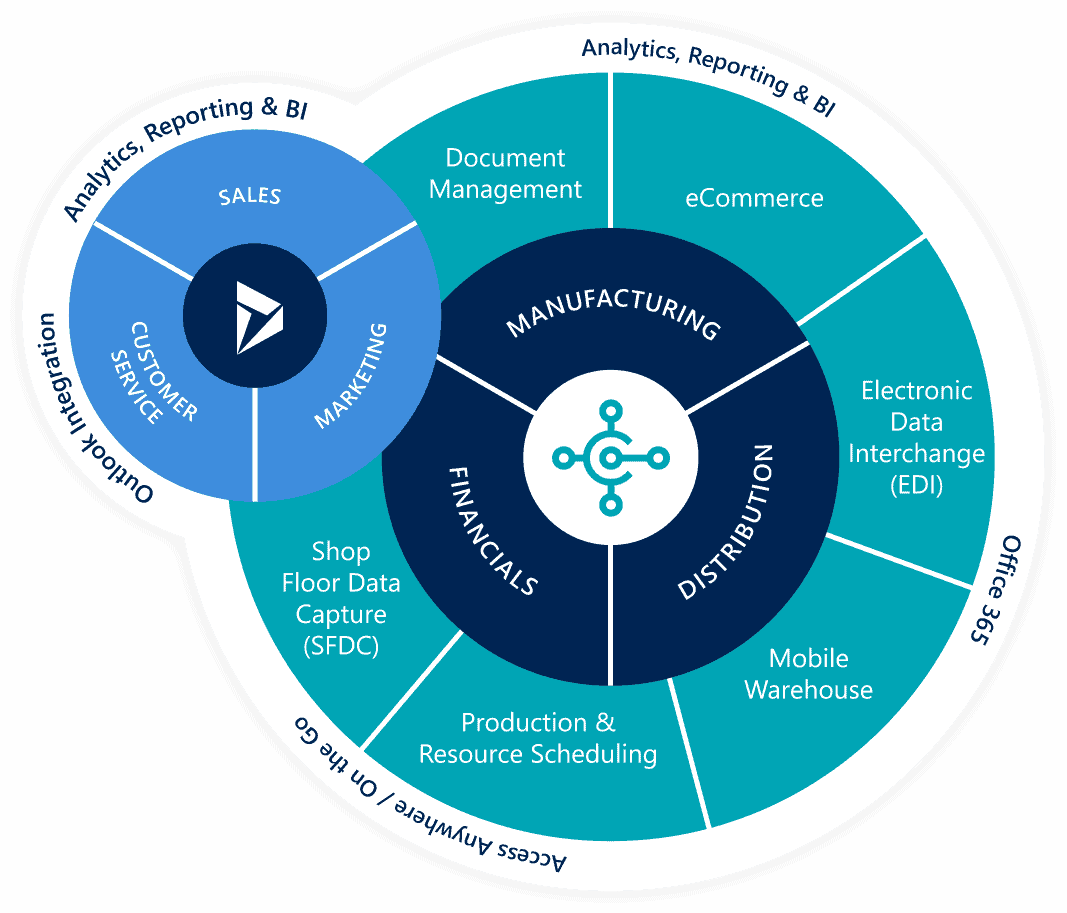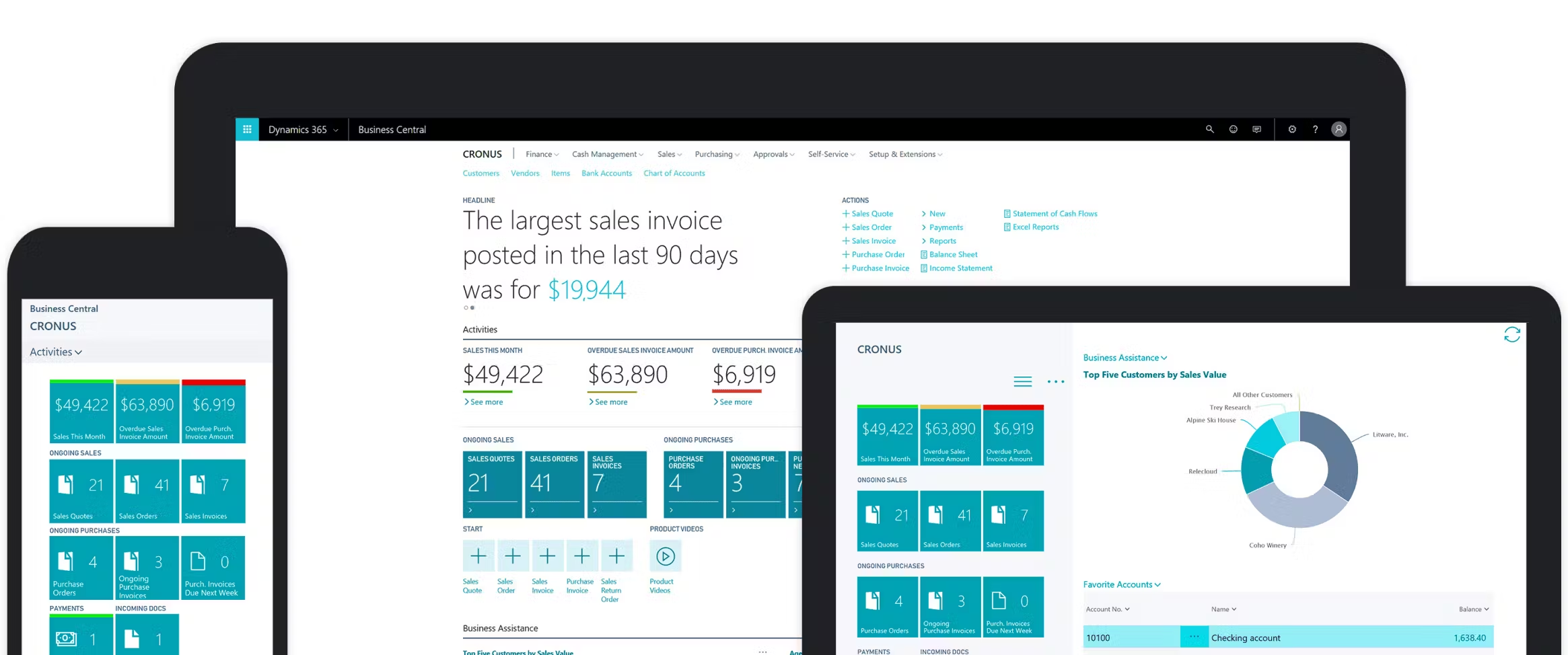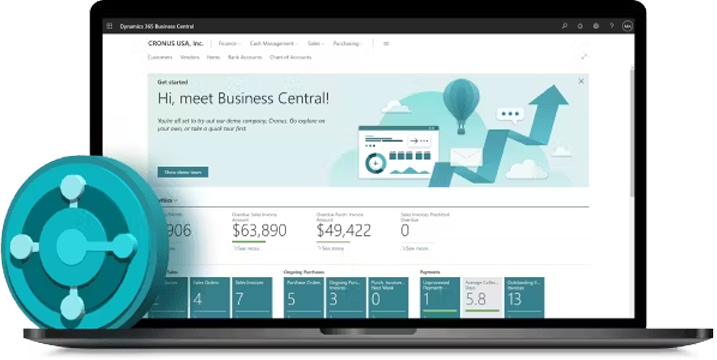- How easy is it to implement Business Central?
- What is Microsoft Dynamics 365 Business Central?
- For which businesses is Business Central available?
- What are the main functions of Business Central?
- How does Business Central integrate with other Microsoft products?
- Is Business Central in the cloud or on-premises?
- Can Business Central be customized to meet specific business needs?
- How can Business Central help improve decision making?
- What are the benefits of using Business Central?
- How secure is Business Central?
- Which industries could benefit from Business Central?
- Does Business Central support multiple languages and currencies?
- How does Business Central support Supply chain management?
- What is the cost structure of Business Central?

Microsoft Dynamics 365 Business Central product benefits
Unified platform: Consolidates all business processes into one solution, reducing the need for multiple decentralized systems.
Improved decision making: Real-time data access and advanced analytics give decision makers accurate and timely information.
Increased productivity: Automated daily tasks, seamless integration, and familiar user interfaces increase employee productivity.
Enhanced collaboration: Integration with Microsoft Teams and Office 365 facilitates collaboration and simplifies communication across departments.
Scalability and flexibility: Scale as the business grows, with the flexibility to adapt to changing business needs.
Lower total cost of ownership: Cloud deployments reduce upfront costs, reduce IT maintenance, and lower total cost of ownership.
Business Central serves a wide range of industries, including:
Manufacturing: Support production planning, shop floor control and inventory management.
Retail and E-commerce: Integrate sales, inventory and customer management tools to enhance the retail experience.
Professional Services: Project and resource management capabilities are tailored to service companies.
Wholesale and Distribution: Optimize supply chain operations with powerful inventory and order management capabilities.
Product characteristics

Our services
-
 Business Central implementationSystem implementation and customization: Implement the system of Business Central according to customers' business requirements, including configuration of function modules, customization of business processes, and system integration, to ensure that the software can meet customers' specific requirements and optimize business processes.
Business Central implementationSystem implementation and customization: Implement the system of Business Central according to customers' business requirements, including configuration of function modules, customization of business processes, and system integration, to ensure that the software can meet customers' specific requirements and optimize business processes. -
 Custom developmentData Migration and Integration: Responsible for the migration of customers' historical data from legacy systems to Business Central, ensuring data accuracy and integrity. In addition, integration services with other systems (such as CRM, e-commerce platforms, etc.) are provided for seamless data flow and business collaboration.
Custom developmentData Migration and Integration: Responsible for the migration of customers' historical data from legacy systems to Business Central, ensuring data accuracy and integrity. In addition, integration services with other systems (such as CRM, e-commerce platforms, etc.) are provided for seamless data flow and business collaboration. -
 Operation support
Operation supportTraining and support: Provide customers with detailed user training to help employees master the use of Business Central. At the same time, provide continuous technical support and maintenance services to ensure the stable operation of the system and timely solve any problems in use.
Do you want to see Business Central in action?
Discuss your Business issues with our Business Central experts and we can tailor a best-in-class Business Central solution for your business.
Get Started NowProduct Questions&Answers
Click on our FAQ to get the best answer!
Request Callback
Please complete the form below and we will be in touch or book a call with one of our Microsoft consultants.

























